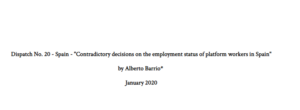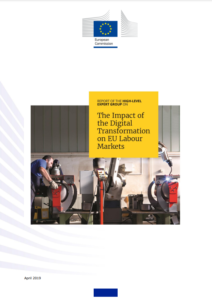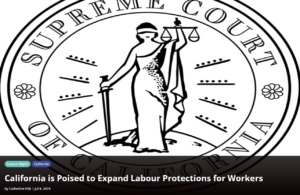Written by Darcy du Toit
Sooner or later, all pandemics are brought to an end. But, until then, they can cause huge damage to
society, as COVID-19 is showing day by day. And none are more at risk than non-standard or
“precarious” workers – casual workers, independent contractors, all those doing jobs without
security of employment and benefits, who generally fall outside the protection of labour law.
A petition by a civil society alliance is currently circulating calling on President Ramaphosa to extend
unemployment insurance benefits to precarious workers. This is just one form of protection which is
much needed by workers who are laid off on a no-work-no-pay basis because they don’t have fixed
jobs – though much else is needed to enable them to take other steps for combating the spread of
the disease, such as social distancing (in over-crowded conditions) or even washing hands (without
running water).
But government has begun to respond. A Notice was issued on 20 March in terms of section 6A of
the Compensation for Occupational Injuries and Diseases Act (COIDA) extending the protection of
the Act in significant ways. Among other things it provides that:
・ employers must pay workers’ wages for days of self-isolation recommended by registered
medical practitioners;
・ temporary total disablement will be paid for up to 30 days to workers diagnosed with
COVID-19 “and where the Compensation Fund has accepted liability”; and
・ medical aid shall be provided for up to 30 days in “all accepted cases of COVID-19”.
The snag lies in the quoted phrases. COIDA, like nearly all labour laws, applies only to “employees”
and not to those classified as “independent contractors”.Paradoxically, this avoidance of legal
regulation has become the norm in the most cutting-edge sectors of the economy as in the days of
the first industrial revolution before labour law existed. This has been an ongoing concern to labour
law stakeholders for a generation and will remain so until it is resolved.
But the Notice itself shows a possible way forward. It starts by classifying jobs into “very high”,
“high”, “medium” and “low exposure risk occupations”, and it does this without reference to the
classification of the person performing that job. In other words, an independent contractor
performing a high-risk job would at as much threatened as an employee, but would be unprotected.
This means that the costs arising from preventive measures, such as self-isolation, fall on the worker
and the worker alone. To those who are struggling to support families in a harsh economic
environment and who contract the virus, does this not create pressure to continue working for as
long as the symptoms can be suppressed or concealed?
The cruel irony of protecting only some of those who are bearing the brunt of the risk invites us to
look for an alternative reading of the Notice. Would it not be in accordance with the Constitution to
interpret the Notice as extending the same protection (as far as possible) to all workers who are
facing the same risk, and could any provision which states the opposite not be considered
unconstitutional?
This is, of course, restating the underlying issue which has arisen time and again in cases where
workers have challenged their classification as independent contractors – for example, Uber drivers.
The difference is that, this time, not just the right to fair labour practices but the right to life is at
stake. And it is not just the rights and interests of the worker versus those of the putative employer
but the interest of society in curbing the spread of the disease.
The underlying fault line will not be fixed without a systematic overhaul of the labour law system to
ensure that all workers’ rights are equally protected. The COVID-19 crisis is underlining that this is in
the public interest.
About the author: Darcy du Toit is an Emeritus Professor and former Dean of Law at the University
of the Western Cape.





 Authors: Funda Ustek-Spilda, Richard Heeks, Mark Graham, Alessio Bertolini, NancySalem, Srujana
Authors: Funda Ustek-Spilda, Richard Heeks, Mark Graham, Alessio Bertolini, NancySalem, Srujana
 Haipeter, Dominick Owczareck, Michele Faioli and Feliciano Ludicone.
Haipeter, Dominick Owczareck, Michele Faioli and Feliciano Ludicone.

 Date of Publication: 2019
Date of Publication: 2019
 Author: Fisk C.
Author: Fisk C.
 Author: Gilwad A.
Author: Gilwad A.
 Authors: Scheiber N.
Authors: Scheiber N.